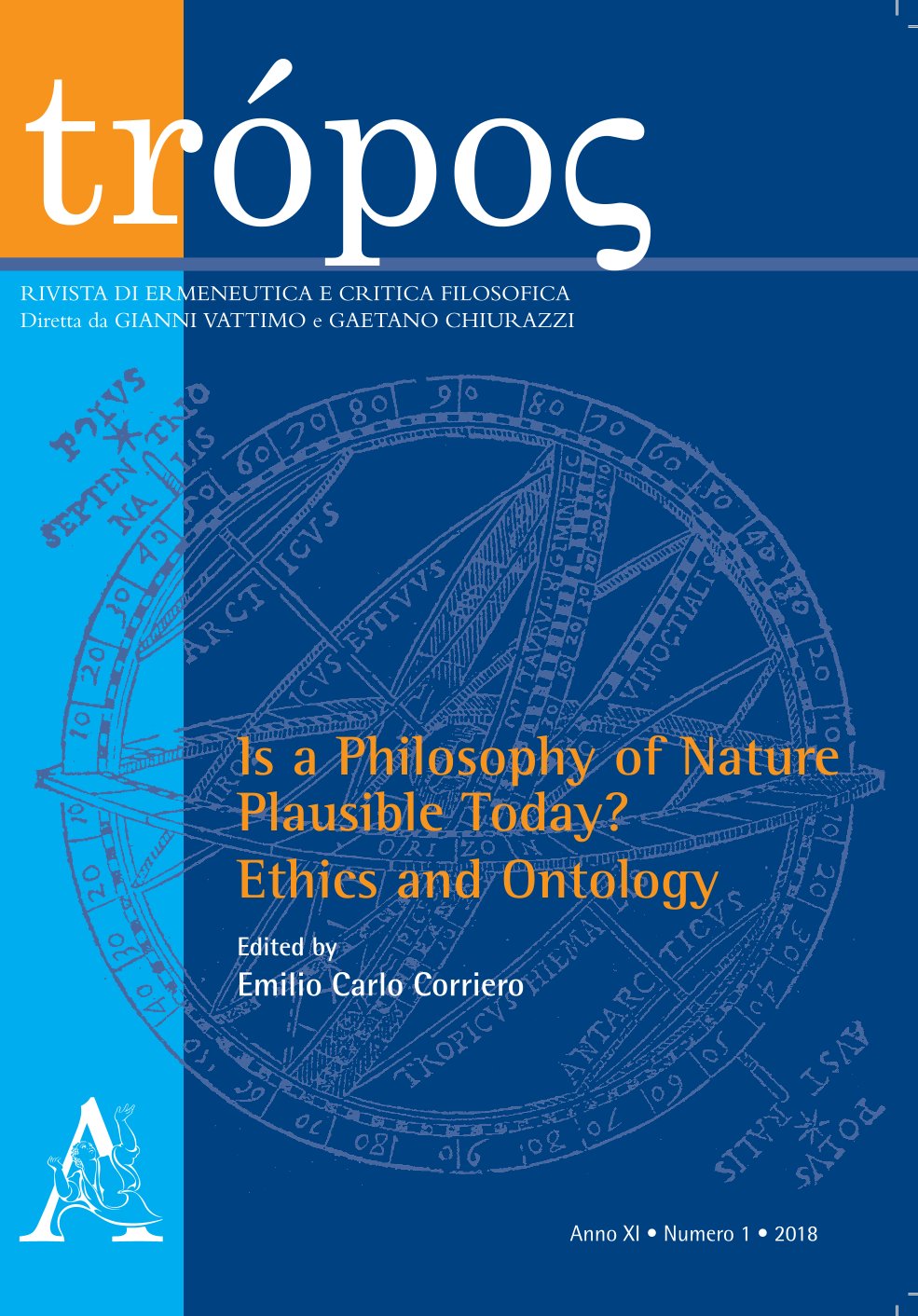Realismo ermeneutico
Tra Heidegger e Adorno
DOI:
https://doi.org/10.13135/2036-542X/8040Parole chiave:
Hermeneutic realism, subjectivity thesis, readability thesis, aspects of truth, antinomy thesis, Heidegger, Adorno, predication, negationAbstract
Hermeneutic Realism: between Heidegger and Adorno. According to hermeneutic realism, first philosophy is the (singular) hermeneuticscience
a priori. Among its central doctrines are the following four theses. (1) The subjectivity thesis states that (a) necessarily space–time includes embodied subjects and that (b) necessarily subjectivity is embodied. (2) The readability thesis states that in perception we read things as tokens (a) of their proper names and (b) of elementary sentences about them. (3) The three aspect thesis of truth states that truth has three essential aspects, a realistic, a pragmatic and a phenomenal aspect (correspondence, assertability and unconcealment, roughly). (4) The antinomy thesis states that thinking as such is fraught with the antinomy of negation, as witness the Liar. The paper discusses Heidegger’s and Adorno’s assessments of these theses in light of the question whether predication or rather negation is the basic operation of thought.



